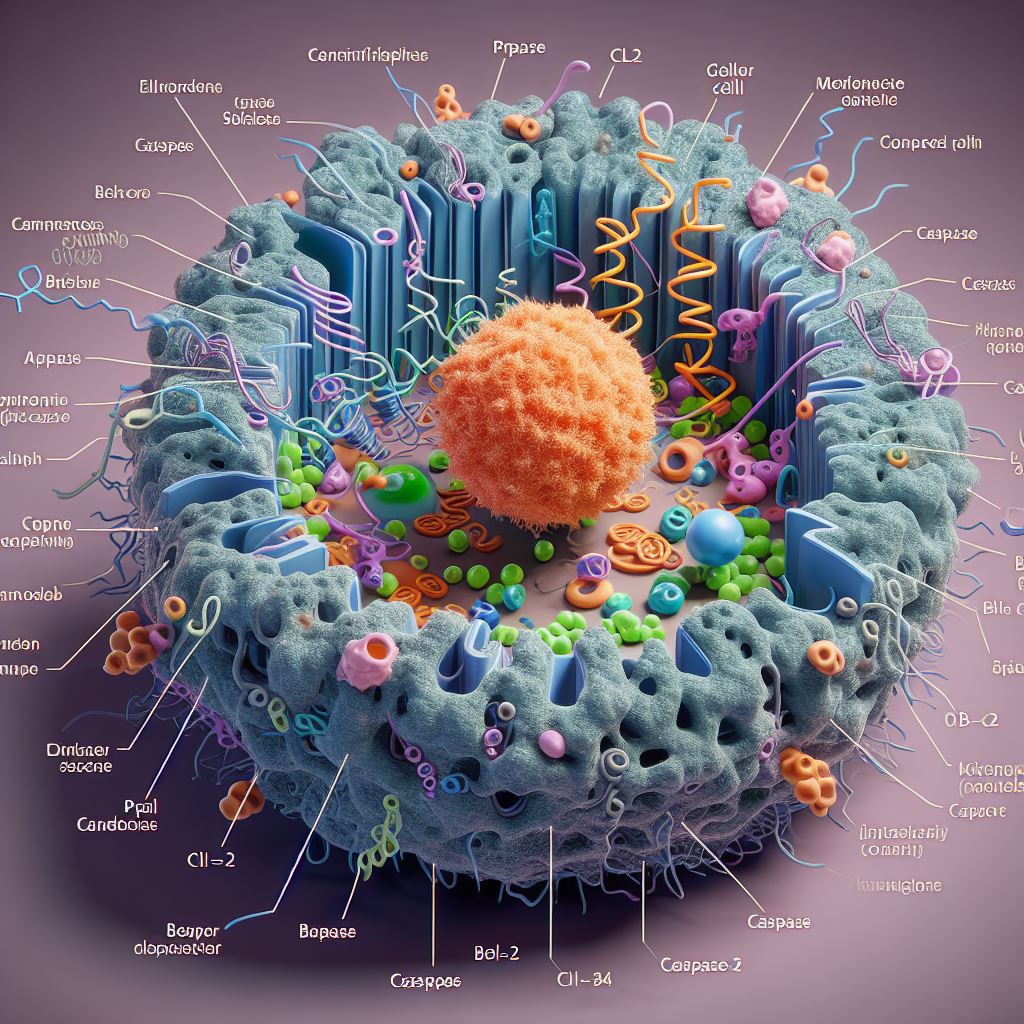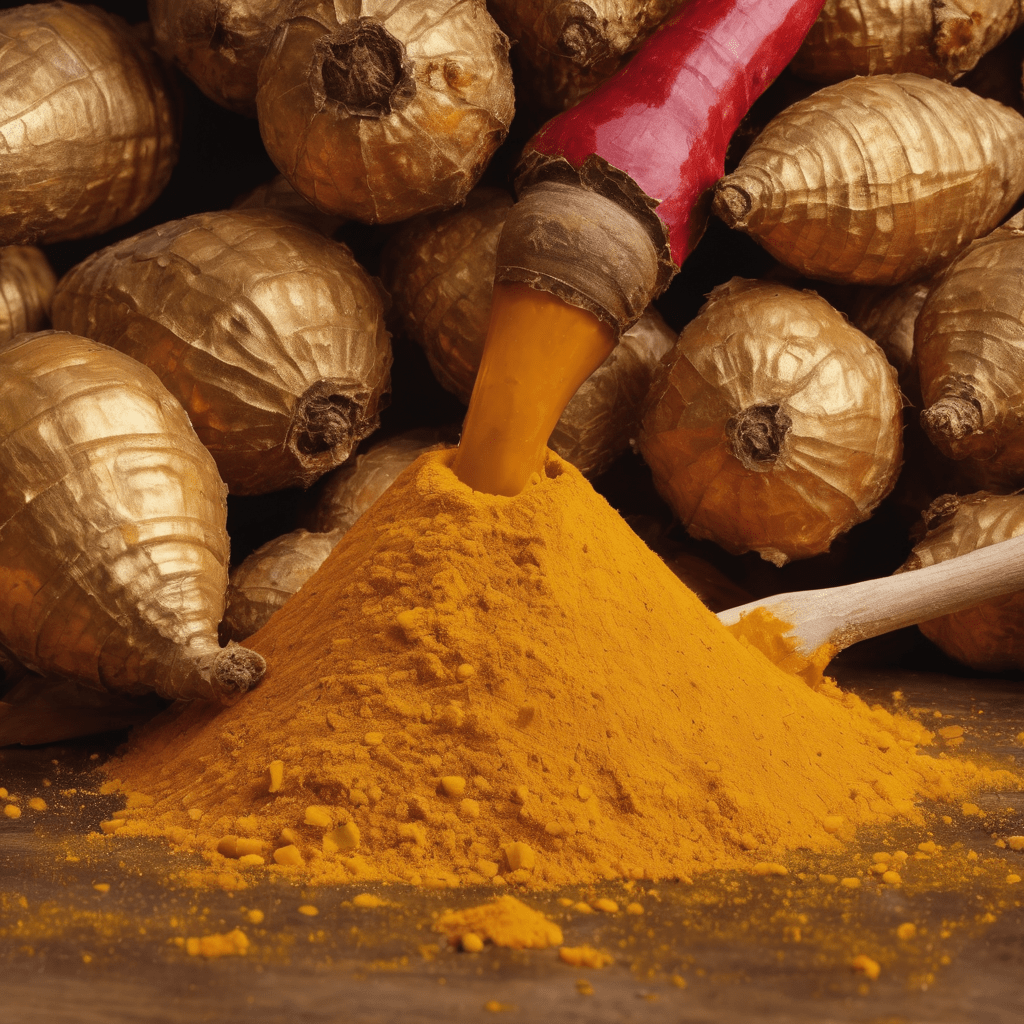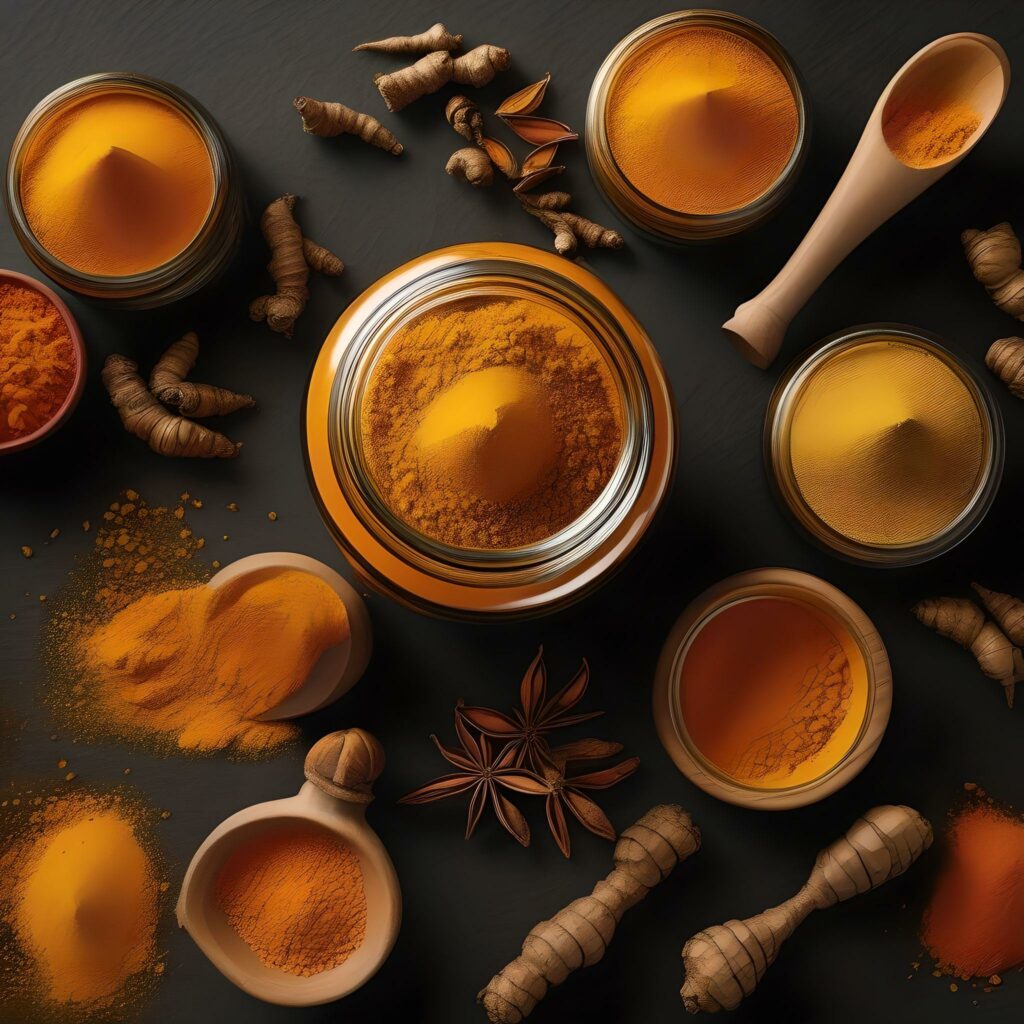
Do you want to understand why turmeric plays a crucial role in preventing cancer? Well, this article will provide you with evidence-based information on the subject. Turmeric contains bioactive compounds that possess anti-inflammatory and antioxidant properties.
It can inhibit the growth of cancer cells and induce their death. Moreover, it suppresses the formation of new blood vessels in tumors. We will also explore how turmeric can work synergistically with conventional cancer treatments.
Get ready to delve into the science behind turmeric’s cancer-fighting potential.
Key Takeaways
- The primary active component of turmeric, curcumin, interferes with signaling pathways necessary for cell survival and proliferation, thereby preventing the growth and spread of cancer cells.
- Turmeric exhibits potent anti-inflammatory and antioxidant effects, which contribute to its cancer-preventive properties.
- Turmeric sensitizes cancer cells to chemotherapy drugs and radiation, leading to increased cell death.
- Turmeric has shown promising results in preventing cancer by inducing cancer cell death and inhibiting tumor angiogenesis.
Turmeric’s Bioactive Compounds
Turmeric’s bioactive compounds contribute significantly to cancer prevention. These compounds, known as curcuminoids, are the main active ingredients in turmeric and are responsible for its therapeutic uses and impact on chronic diseases. Curcumin, the most well-studied curcuminoid, has demonstrated powerful anti-cancer properties through various mechanisms.
Firstly, curcumin has been shown to inhibit the growth and spread of cancer cells. It does this by interfering with multiple signaling pathways involved in cell proliferation, survival, and angiogenesis. Additionally, curcumin induces apoptosis, or programmed cell death, in cancer cells, thereby preventing their uncontrolled growth.
Why Your Health Needs Anti-Inflammatory Spices
Moreover, curcumin exhibits potent anti-inflammatory effects, which play a crucial role in cancer prevention. Chronic inflammation has been linked to the development and progression of various types of cancer. By reducing inflammation, curcumin helps create an environment less conducive to cancer development.
https://link.springer.com/referenceworkentry/10.1007/978-3-030-57415-4_37
Furthermore, curcumin acts as a potent antioxidant, protecting cells from oxidative damage caused by free radicals. This oxidative stress can lead to DNA mutations and the formation of cancerous cells. By neutralizing free radicals, curcumin helps maintain cellular integrity and reduces the risk of cancer.
Anti-Inflammatory Properties
To understand the anti-inflammatory properties of turmeric, you need to explore its ability to reduce chronic inflammation in your body. Chronic inflammation is a condition where your body’s immune system is constantly activated, leading to long-term damage to tissues and organs. Turmeric, specifically its active compound called curcumin, has been found to have potent anti-inflammatory effects.
13 Wonder Skin Benefits from Timeless Turmeric
Numerous studies have shown that curcumin can inhibit the activity of inflammatory molecules, such as cytokines, enzymes, and transcription factors, that play a crucial role in the inflammatory response. By blocking these molecules, curcumin helps to reduce the production of inflammatory markers and mediators. This ultimately leads to a decrease in chronic inflammation.
https://link.springer.com/chapter/10.1007/978-0-387-46401-5_3
In addition to its direct anti-inflammatory effects, turmeric also impacts immune function. The immune system is responsible for defending the body against harmful pathogens and foreign invaders. However, an overactive immune response can lead to chronic inflammation. Turmeric helps to modulate the immune system, suppressing excessive immune activity and promoting a balanced immune response.
Effects of Antioxidants

Turmeric’s antioxidant properties significantly contribute to the prevention of cancer by lowering chronic inflammation. Curcumin, a substance found in turmeric, has been demonstrated to have strong antioxidant qualities.
These anti-oxidant advantages aid in shielding cells from oxidative stress and chronic inflammation brought on by free radicals and unstable molecules.
To help illustrate how the antioxidant properties of turmeric aid in the prevention of cancer, consider the following two sub-lists:
- Reducing Free Radical Damage:
- Turmeric’s curcumin acts as a scavenger, neutralizing free radicals and preventing them from causing DNA damage and mutations that can lead to cancer.
- Curcumin can strengthen the body’s defenses against oxidative stress by increasing the activity of antioxidant enzymes, according to studies.
- Reducing oxidative stress:
- Oxidative stress occurs when there is an imbalance between free radicals and the body’s antioxidant defenses. Turmeric’s antioxidant properties support cellular health and avert the onset of cancer by lowering oxidative stress.
- Research suggests that turmeric supplementation can increase the body’s levels of natural antioxidants, such as glutathione, which help protect against oxidative damage.
Inhibition of Cancer Cell Division
Incorporating turmeric into your diet can inhibit the growth of cancer cells. Turmeric contains a compound called curcumin, which has been extensively studied for its potential anti-cancer properties. Curcumin has shown promising results in inhibiting the growth and spread of various types of cancer cells.
To understand how turmeric inhibits cancer cell growth, let’s take a closer look at some of the mechanisms involved. Curcumin has been found to interfere with several cell signaling pathways that are crucial for cancer cell survival and proliferation. It can suppress the activation of genes that promote cancer growth, induce cell cycle arrest, and promote apoptosis, or programmed cell death, in cancer cells.
https://www.sciencedirect.com/science/article/abs/pii/S1471489205000846
Moreover, curcumin has been shown to have anti-inflammatory and antioxidant effects, which can further contribute to its cancer-fighting properties. Chronic inflammation is often associated with the development and progression of cancer, and curcumin’s anti-inflammatory effects can help reduce inflammation and inhibit cancer cell growth.
Turmeric For Weight Loss: Amazing Tips
To give you a clearer understanding of the potential benefits of turmeric in cancer prevention, here is a table summarizing some of the studies that have investigated its effects on different types of cancer cells:
| Cancer Type | Effect of Turmeric on Cancer Cell Growth |
|---|---|
| Breast Cancer | Inhibited cell proliferation and induced apoptosis |
| Lung Cancer | Suppressed tumor growth and metastasis |
| Colon Cancer | Reduced tumor size and inhibited angiogenesis |
| Prostate Cancer | Inhibited tumor growth and induced cell cycle arrest |
| Pancreatic Cancer | Suppressed cell proliferation and migration |
It is important to note that while turmeric and curcumin show promising potential for cancer prevention cell growth, further research is needed to fully understand their mechanisms of action and optimize their therapeutic use. Additionally, it is always recommended to consult with a healthcare professional before incorporating turmeric or curcumin supplements into your diet, as they may have potential side effects and dosage recommendations that need to be considered.
Aggarwal, B.B., et al. (2003). Anticancer potential of curcumin: preclinical and clinical studies. Anticancer Research, 23(1A): 363-398.
Liang, Y., (2018). Curcumin suppresses MAPK pathways to reverse tobacco smoke-induced gastric epithelial-mesenchymal transition in cancer. Oncology Letters, 15(6): 9041-9049.
Sun, Y., et al. (2019). Curcumin inhibits cell growth and invasion and induces apoptosis through down-regulation of Skp2 in pancreatic cancer cells. American Journal of Cancer Research, 9(12): 2705-2715.
Sun, M., et al. (2013). Curcumin inhibits cell growth and invasion and induces apoptosis through down-regulation of Skp2 in pancreatic cancer cells. American Journal of Cancer Research, 3(5): 465-476.
Yang, C.L., et al. (2019). Curcumin inhibits the migration and invasion of human A549 lung cancer cells through the inhibition of matrix metalloproteinase-2 and -9 and Vascular Endothelial Growth Factor (VEGF). Journal of Cancer, 10(1): 155-163.
Induction of Cancer Cell Death

Turmeric continues to demonstrate its potential in cancer prevention by not only inhibiting cancer cell growth but also by inducing cancer cell death.
https://www.mdpi.com/2072-6643/3/10/877
This process, known as the induction of apoptosis, is crucial in eliminating abnormal cells and preventing their proliferation. Turmeric achieves this by regulating various cell signaling pathways involved in the survival and death of cancer cells.
To paint a clearer picture, here are two sub-lists showcasing how turmeric induces cancer cell death:
- Activation of apoptotic pathways: Turmeric activates several key proteins involved in the apoptotic process, such as caspases, Bcl-2 family proteins, and p53. These proteins regulate the balance between cell survival and death. By increasing the activity of pro-apoptotic proteins and decreasing the activity of anti-apoptotic proteins, turmeric tilts the scale towards cancer cell death.
- Inhibition of cell signaling pathways: Turmeric interferes with signaling pathways that promote cancer cell survival and proliferation. For example, it inhibits the activation of nuclear factor kappa B (NF-kB), a protein that plays a crucial role in promoting cell survival in cancer. By blocking NF-kB, turmeric disrupts the signals that allow cancer cells to survive and grow, ultimately leading to their death.
Through the induction of apoptosis and the regulation of cell signaling pathways, turmeric demonstrates its potential as a powerful tool in preventing cancer. Its ability to target and eliminate cancer cells highlights its promising role in cancer therapy.
Suppression of Tumor Angiogenesis
You can achieve cancer prevention by understanding how turmeric suppresses tumor angiogenesis. Tumor angiogenesis refers to the process of blood vessel formation in cancerous tumors. Turmeric, a potent spice derived from the Curcuma longa plant, has been shown to play a significant role in tumor regression by inhibiting angiogenesis.
https://www.tandfonline.com/doi/abs/10.1080/10623320213635
Research has demonstrated that turmeric’s active compound, curcumin, exerts anti-angiogenic effects by targeting various molecular pathways involved in blood vessel formation. One of the key mechanisms through which turmeric suppresses tumor angiogenesis is by inhibiting the activity of vascular endothelial growth factor (VEGF). VEGF is a protein that stimulates the growth of new blood vessels in tumors, facilitating their proliferation and metastasis.
Turmeric Smoothie For Weight Loss: Number 1 Natural Option
In addition to inhibiting VEGF, turmeric also interferes with other angiogenic factors such as fibroblast growth factor (FGF) and matrix metalloproteinases (MMPs). These factors play crucial roles in promoting the formation of blood vessels in cancerous tissues.
To better understand turmeric’s impact on tumor angiogenesis, consider the following table:
| Mechanism | Description |
|---|---|
| Inhibition of VEGF | Turmeric blocks VEGF activity, reducing the formation of new blood vessels in tumors. |
| Disruption of FGF signaling | Turmeric interferes with FGF signaling pathways, impeding the growth of blood vessels within tumors. |
| Suppression of MMPs | Turmeric inhibits MMPs, enzymes that degrade the extracellular matrix and promote angiogenesis. |
Through its multifaceted actions on angiogenic factors, turmeric exhibits promising potential in suppressing tumor angiogenesis, ultimately contributing to cancer prevention and regression. Understanding the role of turmeric in tumor angiogenesis can help inform preventive and therapeutic strategies for cancer management.
Potential Synergistic Effects With Conventional Treatments

Combining turmeric with conventional treatments can enhance their effectiveness in cancer management.
https://www.mdpi.com/1648-9144/55/4/110
Turmeric exhibits potential synergistic effects when used in combination with chemotherapy, offering new possibilities for cancer treatment
Here are two sub-lists that paint a picture of the synergy between turmeric and conventional cancer treatments:
- Synergy with Chemotherapy:
- Turmeric has been shown to enhance the efficacy of chemotherapy drugs like cisplatin, paclitaxel, and doxorubicin in various types of cancer. Studies have demonstrated that turmeric can sensitize tumor cells to chemotherapy, making them more susceptible to the effects of the drugs.
- Turmeric’s active compound, curcumin, has been found to inhibit multidrug resistance, a phenomenon where cancer cells become resistant to chemotherapy drugs. By inhibiting drug efflux pumps and modulating drug-metabolizing enzymes, curcumin can help overcome resistance and improve the efficacy of chemotherapy.
- Combination Therapy Options:
- Turmeric can be combined with radiation therapy to enhance its anticancer effects. Studies have shown that curcumin can sensitize cancer cells to radiation, leading to increased cell death and reduced tumor growth.
- In addition to chemotherapy and radiation therapy, turmeric can be used in combination with targeted therapy drugs. Preclinical studies have suggested that curcumin can enhance the activity of targeted therapies by inhibiting signaling pathways involved in cancer cell survival and proliferation.
These findings highlight the potential of using turmeric as an adjuvant therapy in combination with conventional treatments, offering a promising approach for improving cancer outcomes. Further research and clinical trials are needed to explore the optimal dosing, timing, and combinations of turmeric with different treatment modalities.
Frequently Asked Questions
Can Turmeric Be Used as a Standalone Treatment for Cancer?
Turmeric has shown promising potential in cancer treatment. While it cannot be used as a standalone treatment for cancer, it can be a valuable addition to conventional therapies like chemotherapy. Studies have suggested that turmeric may help inhibit the growth of cancer cells and enhance the effectiveness of chemotherapy. However, more research is needed to fully understand the mechanisms behind turmeric’s anti-cancer properties and its potential benefits in cancer prevention and treatment.
Are There Any Side Effects or Risks Associated With Consuming Turmeric?
When it comes to consuming turmeric, it’s important to be aware of any potential side effects or risks. Understanding the dosage recommendations, potential drug interactions, and long-term effects is crucial for your safety. Clinical trials have helped establish the safety profile of turmeric, but it’s always wise to consult with a healthcare professional before adding it to your regimen. By staying informed, you can make informed decisions about incorporating turmeric into your health routine.
How Should Turmeric Be Consumed to Maximize Its Cancer Prevention Benefits?
To maximize the cancer prevention benefits of turmeric, there are various ways you can consume it. One option is to incorporate turmeric into your meals by using turmeric recipes. This allows for a consistent intake of turmeric over time. Another option is to take turmeric supplements, which provide a concentrated dose of curcumin, the active compound in turmeric. However, it is important to consult with a healthcare professional before starting any new supplement regimen.
Can Turmeric Prevent the Recurrence of Cancer in Patients Who Have Already Undergone Treatment?
Turmeric has shown promise in preventing the recurrence of cancer in patients who have undergone treatment. Studies have indicated that the active compound in turmeric, called curcumin, has anti-tumor properties and can inhibit the growth of cancer cells. Additionally, curcumin has been found to enhance the efficacy of chemotherapy and radiation therapy, making it a potential adjunct treatment for cancer. Further research is needed to fully understand the mechanisms behind turmeric’s role in cancer treatment and recurrence prevention.
Are There Any Specific Types or Stages of Cancer for Which Turmeric Is Particularly Effective?
Turmeric’s effectiveness in preventing specific types or stages of cancer is a subject of ongoing research. While numerous studies suggest that turmeric may have cancer prevention properties, the specific cancer types for which it is most effective remain unclear. However, preliminary research indicates that turmeric may have potential for preventing the growth and spread of certain cancers. Further investigation is needed to determine the exact mechanisms by which turmeric exerts its anti-cancer effects and its potential application to specific cancer types.
Conclusion
In conclusion, the strong link between turmeric and the prevention of cancer highlights the remarkable potential of this golden spice to enhance health and overall wellbeing. Curcumin, the active ingredient in turmeric, has been shown in extensive research to have remarkable cancer prevention properties that target different stages of cancer development and progression. Turmeric becomes an effective weapon against cancer by preventing the growth of cancer cells, decreasing inflammation, and enhancing the body’s natural defense systems.
Transform Your Health With Turmeric For Inflammation: The Ultimate Guide To Reducing Pain And Inflammation Naturally
As we navigate the complex landscape of health and cancer prevention, incorporating turmeric into our daily lives seems like a simple yet powerful step towards a healthier future. The versatility of turmeric, whether in culinary delights or as a supplement, makes it accessible to people from all walks of life. However, before making big dietary or lifestyle changes, it is imperative to speak with medical professionals.
Furthermore, the adventure is not over yet. If you’re intrigued by the potential of turmeric and want to delve deeper into its numerous health benefits, I invite you to explore my other site dedicated exclusively to the wonders of turmeric. You can get a wealth of knowledge, extra perspectives, and helpful advice on how to incorporate turmeric into your daily routine there. Discovering all the benefits this age-old spice has to offer is only the beginning.
Let turmeric be your faithful ally in the pursuit of a healthier, cancer-resistant life. Let us embrace the power of wellness and cancer prevention together. Visit [https://sturmeric.com/] for a deeper dive into the world of turmeric and its myriad health-promoting wonders.
I appreciate you coming along for this insightful look at turmeric’s potential to prevent cancer. Let us hope for a time in the future when we can enjoy the health benefits of a more vibrant, healthier life in addition to the flavorful benefits of turmeric.

